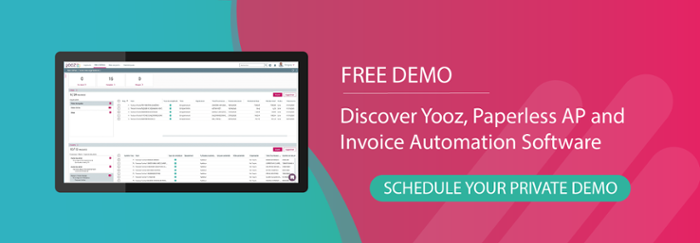Whether you’re a shop store manager or ecommerce site owner, maintaining sufficient profit margins in retail is something that keeps a lot of people up at night. With stiff competition and slim margins to deal with - let alone trying to balance all kinds of other factors that affect a company - retailers are fighting a daily battle in turning a profit. Keeping suppliers happy is a top priority in helping achieve this, and making sure they’re all paid on time is vital in ensuring retailers can react quickly to new trends and keep operations running smoothly.
But while many retailers will concentrate on optimising processes that directly affect the bottom line, unsung heroes such as Accounts Payable often go amiss. As a result, what happens then is that retailers slow down their processes, miss payments, upset suppliers and ultimately put their business at risk.
Providing a real-time view on cash flow is another key challenge for retailers, something which Accounts Payable automation can help provide. Adopting technologies like automation in the finance function can not only helping retailers concentrate on the jobs that matter but also reduce unnecessary costs that can then be reinvested elsewhere.
What is retail Accounts Payable?
Retail Accounts Payable is the practice of ensuring suppliers and vendors are being paid for the goods or services ordered by the business. This is typically done by sending, receiving, and processing invoices or other types of credit. The job of Accounts Payable is to make sure that payments are sent for the right amount, to the right vendor or supplier, and at a time according to what was agreed upon by both parties at the time of purchase. The process is the same as it is in any type of business, but there are some unique challenges that make retail Accounts Payable even more important to get right.
Retail and e-commerce stores both depend on smooth transactions for their customers, but also from their providers. If you’re a large organisation, you might have vendors and suppliers from all across the world delivering goods and services, but even smaller or independent retailers have issues when it comes to Accounts Payable. Late payments can mean suppliers choosing to do business elsewhere, which means no more stock and a direct hit on revenue and customer satisfaction.
Let's look into these challenges a bit further.
Accounts Payable challenges facing retailers
One of the biggest reasons why so many retailers have trouble with their Accounts Payable is the reliance on manual processes. With so many suppliers and vendors to manage as well as making sure payments are made on time, retailers need a more modern system than spreadsheets and paper-based systems. There are plenty of issues that arise from this, including:
- Supplier relationships: Arguably the biggest thing that keeps suppliers and vendors happy is getting paid on time, but this can be difficult when you work with so many. Manually tracking payments takes time and resources away from other, more critical areas of the business, and it only increases the chances of late payments. Not only can relationships become strained in this scenario, but it can also have a knock-on effect on retail operations and therefore a direct impact on revenue.
- Fraud: Invoice fraud - where third parties pretending to be a supplier request you to make a payment to alternative bank details - is on the rise in the UK, with the average business losing almost £300,000 every year due to the practice. With automated Accounts Payable software in place, retailers can ensure that payments are only made to the correct suppliers, for the right amount, and at the right time.
- Human error: We’re all prone to making mistakes every now and then, especially when we have a lot on our plates. It’s easy to misread information on documents or enter data incorrectly in stressful situations, but even the smallest error can lead to critical problems. By taking the robot out of the human, Accounts Payable automation can help ensure accuracy and timeliness of payments.
- Cost: While helping improve the overall speed and accuracy of the payment process, the cost associated with manual Accounts Payable can also be reduced by around 80% by switching to automated solutions. This is done by reducing the need for and time spent on managing the invoice process. By speeding up approval times, staff can be freed up to concentrate on more business-critical tasks that can help generate revenue and profit.
Accounts Payable automation for retail
Instead of relying on manual Accounts Payable processes, retailers need an automated solution that can take the time, hassle, and errors out of their current invoicing system. For larger organisations that handle thousands of invoices per month, this could drastically reduce the amount of time and costs associated with manually processing payments, freeing up staff time to focus on more business-critical tasks. For smaller or independent retailers, implementing Accounts Payable Automation for retail can help improve supplier relationships and ensure operations are never halted due to late payments.
With new trends and consumer habits to keep on top of, store managers can’t be burdened and distracted by inefficient finance processes. Automation is the key to helping retailers and ecommerce stores keep up with the pace of the market. By shifting away from human error and late payments, retailers can realise cost, time, accuracy, and many more benefits of moving to automation.







